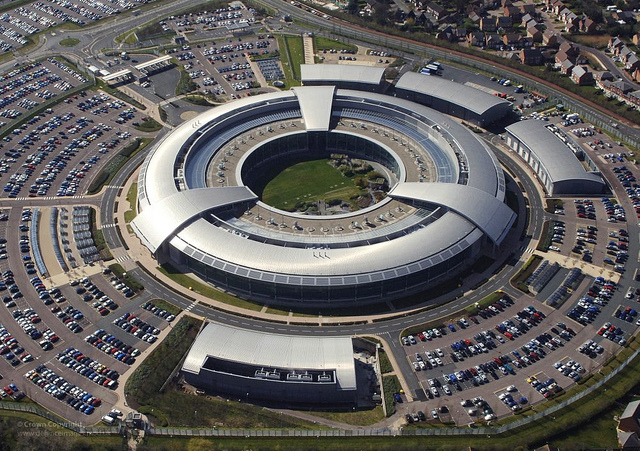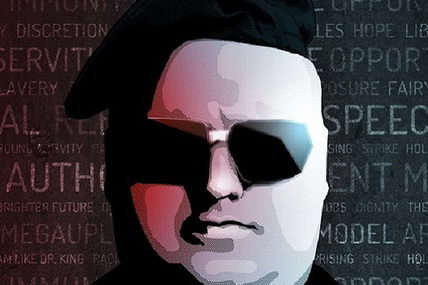Online pirates could face same prison term as sex offenders
Harsher penalties for online piracy are 'not appropriate', warns paralegal


A government proposal to raise the maximum sentence for online piracy to 10 years would mean offenders could face the jail time as sex offenders.
The Intellectual Property Office (IPO) has launched a consultation aiming to determine whether the maximum sentence for online piracy should be raised from two to 10 years in jail, to match the current maximum prison time for physical piracy of goods, like bootlegging DVDs.
But other, more serious crimes carrying a jail term of up to 10 years include sexual assault, grooming a child for sex and then meeting them, and some firearms offences.
Affray and brothelkeeping carry more lenient maximum tariffs.
The consultation paper claims "there is no doubt that copyright infringement is serious and there is no strong case for treating online infringement any differently to physical infringement".
It adds that "the links to other criminal behaviour are clear; criminal gangs are making vast sums of money through exploiting the creations of others, causing real harm to those individuals, their industry and the wider economy".
The government also claims in the document that a change in sentencing guidelines "will send a clear message to rights holders and criminals that copyright infringement will not be tolerated".
Get the ITPro daily newsletter
Sign up today and you will receive a free copy of our Future Focus 2025 report - the leading guidance on AI, cybersecurity and other IT challenges as per 700+ senior executives
But is this really a reasonable course of action?
A case of equivalence
That digital piracy could be put on a par with serious sexual offences shows the disproportionate way that sentencing for piracy is doled out, an expert told IT Pro.
"That the maximum sentence for online piracy would be the same as sexual assault is not appropriate," Natalie Reeves, a paralegal at the Citizen's Advice Bureau (CAB) said. "It shows that we value money above the welfare of people."
The IPO, however, disagrees, citing independent research commissioned by the government body last year, which concluded: "There is logic to placing serious online copyright offences into a more serious category. The precedents within the IP landscape are either to leave offences outside the criminal justice system altogether (as in the case of patents) or to set a maximum offence on conviction of ten years. Fundamentally, either online copyright offences are capable of causing serious harm, or they are not."
An IPO spokesperson also told IT Pro that the proposed elevation of the maximum sentence for online piracy "is made in the context of the recognition of the serious harm that commercial scale infringement, frequently linked to serious and organised crime, can cause to both society and the economy."
"The Annual IP Crime Report contains evidence showing the links between IP crime and other crimes including drug dealing, violence, people trafficking and prostitution," the body added.
Let the punishment fit the crime
In the consultation document, it is stated that potentially raising the maximum custodial tariff for online piracy to 10 years is "supported by the Conservative manifesto commitment that sentencing should reflect the seriousness of the crime".
Additionally, the Penalty Fair report, which was carried out last year, found a general consensus among industry bodies that stiffer sanctions for serious online infringement cases would be helpful.
"The argument is, perhaps, most persuasive when it comes from organisations such as FACT and BPI who have hands-on experience of the shortcomings of the existing CDPA 1988 provisions regarding online infringement (though they do of course represent organisations who are already convinced of the advantages of bringing prosecutions, and are funded in a manner that enables them to do so, at least occasionally)," the report added.
However, research has consistently shown that harsher penalties do little to dissuade individuals from committing a crime.
Research carried out by Andrew von Hirsch, Anthony Bottoms, Elizabeth Burney and Per-Olof Wikstrom, Criminologists from the University of Cambridge, for the Home Office in 1999 showed that "[while] results revealed negative statistical associations between certainty of punishment and crime rates ... the statistical associations between severity of punishment and crime rates are considerably weaker".
In other words, if a person is certain they will be punished for a crime they commit, they are less likely to carry out the act. However, the severity or leniency of the punishment is has no clear effect.
Anthony Doob and Cheryl Marie Webster, in their 2003 paper Sentence Severity and Crime: Accepting the Null Hypothesis, noted that "variation in the severity of sanctions is unrelated to levels of crime".
Looking at the American justice system, Valerie Wright, research analyst at non-profit organisation The Sentencing Project, wrote in 2010 that: "As a consequence of more punitive laws and harsher sentencing policies 2.3 million people are incarcerated in the nation's prisons and jails, and the US leads the world in its rate of incarceration."
However, in one of many studies referenced by Wright, criminologists David Farrington, Paul Langan, and Per-Olof Wikstrom "failed to find an effect for severity" when comparing crime and punishment trends across the US, Great Britain and Sweden.
"The statistical associations were weak and even when there was a negative relationship between severity of punishment and crime rates, the findings were not strong enough to achieve statistical significance. This finding is noteworthy because it reflected varying degrees of punitiveness in the sentencing policies of the three nations," Wright added.
All of these findings then raise an important question: why is an increase in the potential maximum sentence for online piracy being considered when it is unlikely to have an effect on the level of crime being committed?
Indeed, a positive correlation between incarceration and the likelihood of reoffending has been demonstrated repeatedly, particularly if the sentence is lengthy and there is little emphasis on rehabilitation.
Rhetoric vs reality
Should the consultation currently underway recommend that the maximum sentence is raised from two years to 10, and should the government accept the proposal, the impact on the criminal justice system, and prisons in particular, could be significant.
That prisons in England and Wales (Scotland has its own justics system) are currently overcrowded is a matter of public record. The latest report from HM chief inspector of prisons for England and Wales, Nick Hardwick, noted: "Overcrowding remained a significant problem across the range of prisons we inspected in 2014-15, particularly in local and category C training prisons, where most prisoners were held. As I have argued before, overcrowding is not simply a matter of two prisoners sharing a cell designed for one with an unscreened toilet - undesirable though that is. It means that a prison will not have the activity places, the support mechanisms or the rehabilitation programmes it needs for the size of its population. More prisoners cannot simply be crammed into the available space."
With regard to the sharp uptick in violence, deaths, self-harm and drug use in prisons over the past 12 months, as part of a longer five-year trend, Hardwick said: "It remains my view that staff shortages, overcrowding and the wider policy changes described in this report have had a significant impact on prison safety.
"I share the conclusion of the Justice Committee report: 'We believe that the key explanatory factor for the obvious deterioration in standards over the last year is that a significant number of prisons have been operating at staffing levels below what is necessary to maintain reasonable, safe and rehabilitative regimes'."
Could raising the sentence above two years for digital piracy, irrespective of where it is raised to, further compound this problem?
Reeves told IT Pro: "We don't know what this will affect the criminal justice system, because we don't know how many people will be prosecuted."
However, the figures for current prosecutions for physical piracy provide some insight.
The Crown Prosecution Service was unable to provide IT Pro with figures relating to convictions and sentencing for offences charged under the relevant sections of the Copyright, Designs and Patent Act 1988, but it did offer details of the number offences that had been charged, and they make for enlightening reading.
In 2012/13, the total number of offences charged and reaching a first hearing in a magistrate's court under all relevant sections of the Copyright, Designs and Patent Act 1988 was 137. In 2014/15, that number fell to 36.
As mentioned, this does not show how many people were convicted, or how long they were sentenced for. Logic would dictate, however, that the number of convictions was less than the total number of court appearances, that the number of custodial sentences handed out was less than that, and that the number of people sentenced to the maximum 10-year tariff would be even less and potentially none.
"If very few people are going to be prosecuted under the proposed amendments, then why are we wasting time and money changing the legislation?" said Reeves. "And if lots are prosecuted, are we really putting large scale dealing in media on a level with large scale dealing drugs?"

Jane McCallion is Managing Editor of ITPro and ChannelPro, specializing in data centers, enterprise IT infrastructure, and cybersecurity. Before becoming Managing Editor, she held the role of Deputy Editor and, prior to that, Features Editor, managing a pool of freelance and internal writers, while continuing to specialize in enterprise IT infrastructure, and business strategy.
Prior to joining ITPro, Jane was a freelance business journalist writing as both Jane McCallion and Jane Bordenave for titles such as European CEO, World Finance, and Business Excellence Magazine.
-
 GCHQ’s mass data collection practices breached human rights law, European court rules
GCHQ’s mass data collection practices breached human rights law, European court rulesNews Surveillance methods disclosed by Edward Snowden in 2013 ruled illegal in landmark ruling
By Keumars Afifi-Sabet
-
 Google and Microsoft agree to crack down on piracy
Google and Microsoft agree to crack down on piracyNews Tech firms sign up to voluntary code of conduct
By Clare Hopping
-
 Linking to Playboy piracy isn't infringement, says EU advisor
Linking to Playboy piracy isn't infringement, says EU advisorNews Advocate general delivery advisory ahead of landmark case
By Adam Shepherd
-
 Swedish ISPs cannot be forced to block The Pirate Bay
Swedish ISPs cannot be forced to block The Pirate BayNews Swedish court rules that ISPs cannot be legally compelled to block file-sharing sites on the grounds of copyright infringement
By Adam Shepherd
-
 Why ISPs are blocking ebook piracy sites
Why ISPs are blocking ebook piracy sitesNews Publishers Association wins piracy site ban after millions of takedown requests
By Nicole Kobie
-
 BBC says ISPs should cut off pirate connections
BBC says ISPs should cut off pirate connectionsNews BBC Worldwide thinks those who repeatedly infringe copyright should not have an internet connection at all
By Clare Hopping
-
 Megaupload founder denied access to evidence by NZ Court of Appeal
Megaupload founder denied access to evidence by NZ Court of AppealNews Kim Dotcom to take his fight to the Supreme Court.
By Khidr Suleman
-
 UK court orders blocking of more torrent websites
UK court orders blocking of more torrent websitesNews H33T, Fenopy and Kickass Torrents get blocked
By Rene Millman

